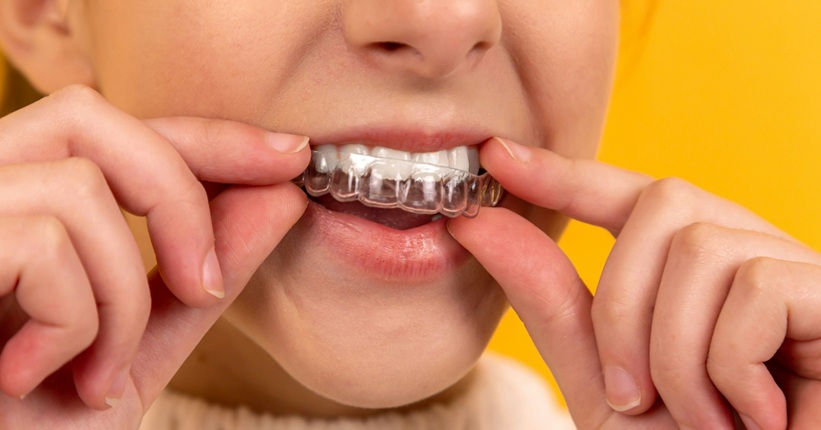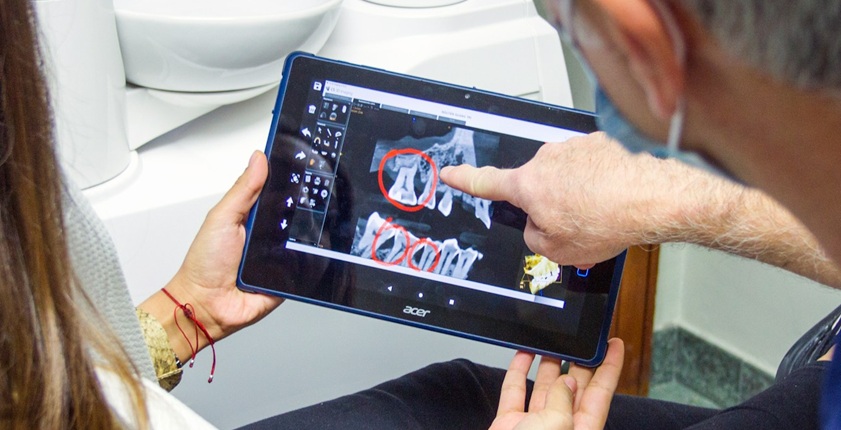
Dental Implants and Smoking
Dental implants are a breakthrough solution for people who have lost one or more teeth, offering a lasting and aesthetic option to restore a smile. The success of implant treatment is strongly related to many factors, among which the patient's lifestyle plays a key role. Particular attention should be paid to smoking - a habit that has far-reaching consequences not only for the general state of health, but also for the success of the dental implantation procedure and the long-term preservation of implants. Scientific studies clearly indicate the negative impact of smoking on the healing process after surgery, osseointegration (adhesion of the implant to the bone), as well as on the long-term stability and functionality of implants. Faced with these challenges, both patients and physicians face the important task of understanding how smoking affects dental implants and what can be done to minimize the potential risks associated with this harmful habit.
Why is it worth quitting smoking when preparing for dental implantation? What is the effect of nicotine and tobacco smoke on the oral cavity?
Nicotine and tobacco smoke have a significant effect on the oral cavity, contributing to a number of health problems:
- Periodontal diseases: Nicotine restricts blood flow in the gums, which can lead to periodontal disease, including gingivitis and progressive loss of bone supporting the teeth. The presence in tobacco smoke of toxic substances that can directly damage gum tissues also contributes to this.
- Delayed wound healing: In smokers, delayed wound healing after dental procedures is observed, which increases the risk of infection and other complications.
- Increased risk of oral cancer: Smoking is one of the main risk factors for the development of cancer of the mouth, lips, tongue, throat and esophagus. Nicotine itself is not carcinogenic, but tobacco smoke contains many carcinogenic substances.
- Caries: Smokers have a higher risk of developing caries due to reduced saliva flow, which favors the growth of bacteria in the mouth.
- Teeth coloring: Tobacco smoke can lead to yellowing or browning of teeth due to the deposition of tar on them.
- Bad breath: Substances present in tobacco smoke can cause bad breath, and limited blood flow in the gums can contribute to the development of infections that also affect the smell from the mouth.
- Taste disorders: Smoking can reduce the ability to perceive tastes and smells, which affects the quality of life.
- Changes in the appearance of the oral cavity: There may be the appearance on the gums of dark spots, called smoker's melanosis, which is directly related to smoking.
Substances that adversely affect the tissues of the oral cavity
Cigarettes contain hundreds of chemicals, many of which are harmful not only to general health, but also specifically to oral health. Here are some of the main components of cigarettes that negatively affect oral health:
- Nicotine: It reduces blood flow to the gums, which can lead to periodontal disease and delay wound healing.
- Carbon monoxide: It limits the ability of the blood to carry oxygen, which can interfere with the body's ability to repair and regenerate oral tissues.
- Burr: It settles on the teeth, causing their discoloration and the formation of tartar. It contains carcinogenic substances, contributing to an increased risk of oral cancer.
- Cadmium: Heavy metals, such as cadmium, can contribute to gum disease and reduce local immunity in the mouth.
- Formaldehyde: A carcinogenic substance that can increase the risk of developing oral cancer.
- Acrolein and acrylamide: Chemicals that can damage oral tissue and contribute to the development of gum disease.
- Benzene: A carcinogen that can increase the risk of developing leukemia and oral cancer.
- Arsenic: A toxic substance, affecting the health of the gums and increasing the risk of cancer.
- Ammonia: Increases the pH of tobacco smoke, which can contribute to the faster development of caries.
- Hydrogen cyanide: Toxic to gum tissue, negatively affecting their health and regeneration.
Many of these substances not only negatively affect oral health, but also significantly increase the risk of developing systemic diseases, such as heart disease, strokes and various types of cancer.
What do we know from the research?
The medical studies carried out provide important data on the impact of smoking on the success and durability of dental implants. The results of these studies shed light on significant differences in the rate of complications and effectiveness of implants between smokers and non-smokers.
Conclusions of the research:
- Studies show that implant rejection is observed in 10% of smokers. This is an indicator that clearly indicates the negative impact of smoking on the process of integration of the implant with the bone and on the long-term stability and functionality of the implant.
- An alarming finding is the fact that after just 5 years after the procedure, dental implants in tobacco smokers cease to fulfill their basic function, which is chewing and biting food. The rapid decline in implant functionality may be associated with a higher risk of periodontal disease, bone loss and poorer osseointegration, which are more common among smokers.
- Unlike smokers, in non-smokers, deterioration of the condition of implanted teeth is observed only in 5% of cases, and only after ten years. This shows how much of an impact tobacco avoidance has on the long-term preservation of the health and functionality of implants.
Is it possible to smoke tobacco before implantation?
Although it is technically possible to smoke before dental implantation, dental professionals strongly advise against the practice due to the many negative effects that smoking has on oral health and the healing process.
- Delayed healing: Smoking restricts blood flow to the gums and the implantation area, which can slow or hinder the healing process. The limited supply of oxygen and nutrients to the tissues can lead to poorer regeneration and a longer recovery period after surgery.
- Higher risk of infection: Nicotine and other toxic substances in tobacco smoke can reduce the local resistance of the oral cavity, increasing the risk of infection at the implantation site. Infections can lead to delayed healing or even rejection of the implant.
- Osseointegration failure: Osseointegration is the process by which a dental implant integrates with the jaw or mandibular bone, becoming a stable and permanent foundation for the future dental prosthesis. Smoking can disrupt this process, increasing the risk of osseointegration failure. This can result in a loose implant or its complete loss.
- Increased risk of periodontal disease: Smokers are more likely to develop gum disease and the bone supporting the teeth, which can also affect the stability of implants. Periodontal disease can lead to bone loss around implants, which in turn increases the risk of their loss.
- Aesthetic disorders: Smoking can lead to discoloration of natural teeth and prosthetic materials, which can have a negative impact on the appearance of a smile after implantation.
Chronic inflammation of the mucous membrane and tissue around the implants (peri-implantitis)
Smoking after dental implantation can lead to a number of complications, negatively affecting the healing process and the overall succession of the procedure. Here is a detailed explanation of how smoking affects various aspects of oral health after implantation:
- Bleeding of the treatment area: Smoking increases the risk of bleeding in the treatment area, as nicotine causes blood vessels to spasm, which can interfere with the normal healing process. Reduced blood flow makes it difficult to deliver essential nutrients and oxygen to the tissue, which is crucial for recovery.
- Decrease in the level of salivation: Nicotine and other chemicals in tobacco smoke can reduce saliva production. Dry oral mucosa is more susceptible to infection, which can lead to inflammation and other problems in the implant area. In addition, saliva naturally helps to remove food debris and bacteria, so its reduced amount favors the formation of tartar and the development of gum disease.
- Long-term suture healing and fusion of titanium rod with bone: Smoking significantly increases the time it takes for sutures to heal and the implant (titanium rod) to fuse properly with the bone, known as osseointegration. This process is critical for the stability and long-term functionality of the implant. Nicotine and other toxins in tobacco smoke interfere with blood flow to the treatment area, which delays recovery and can lead to poorer fusion of the implant with the bone.
- Loss of bone tissue: Smoking is recognized as one of the main risk factors for the loss of bone tissue around implants. Reduced blood flow and the body's limited ability to fight infections favor the development of inflammation and periodontal disease, which can lead to bone loss. Bone loss is a serious problem, as it can result in impaired implant stability and, in extreme cases, loss.
Doctors and dental surgeons usually recommend that patients stop smoking a few weeks before their planned dental implantation surgery, as well as maintain abstinence after the procedure to maximize the chances of success and minimize the risk of complications. Ideally, quitting smoking permanently has the best benefits for your oral health and overall health.
Is it possible to smoke tobacco after implantation of teeth?
Smoking after dental implants can lead to a number of serious problems, negatively affecting the healing process and the long-term life of the implants.
Because of these risks, patients planning a dental implantation procedure are often encouraged to quit smoking before surgery and maintain tobacco abstinence after surgery to increase the chances of treatment success and ensure the long-term functionality and aesthetics of the implants.
Is it possible to smoke tobacco after implants have taken root?
It is possible to smoke tobacco after implants have taken root, but it is important to be aware of the negative consequences associated with this practice. Studies prove that smoking has a negative impact on the durability and health of dental implants. A study comparing the condition of implants in smokers and non-smokers found that smoking increases the annual rate of bone loss around the implant neck by an additional 0.16 mm per year. Although this may seem like a small amount, it is important to understand that the process of bone loss around implants is natural and occurs even without the influence of smoking. Smoking further accelerates this process and increases bone loss by another 0.16 mm per year.
Thus, although it is physically possible to smoke after the implants have taken root, it should be borne in mind that this contributes to faster bone loss around the implants. This accelerated bone loss can lead to destabilization of the implant, increasing the risk of losing it. Therefore, it is recommended that people with dental implants refrain from smoking to ensure the long-term stability and health of their implants and to avoid the negative effects of smoking.
Content author

Dr. Jan Kempa
Dr. Jan Kempa is a passionate dentist who always cares about a good relationship with patients. His positive attitude makes even the most timid patients feel safe. He specializes in implantology and dental surgery, using modern treatment techniques. He is enthusiastic about using his own tissues to rebuild bones before implantation and to cover gum recession. Dr. Kempa always finds the time to listen to the patient and offers individual solutions.

Start treatment already today!
Make an appointment and discover why our patients recommend us to their loved ones. We will take the utmost care of your smile.


